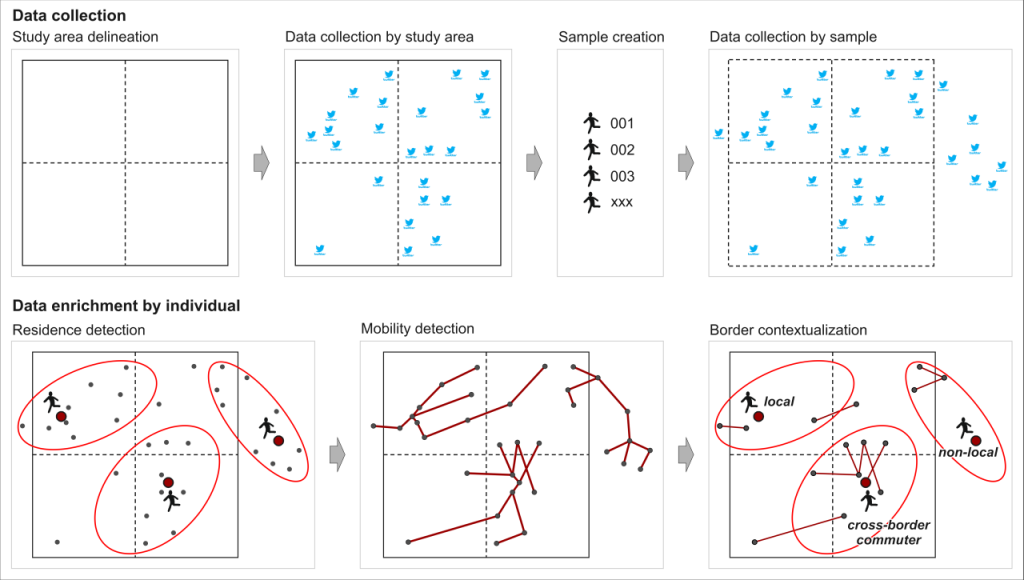Authors: Michaela Söderholm & Olle Järv
One of the objectives of the BORDERSPACE project is to empirically capture functional border regions, and transnational spaces in general, from the perspective of people – their mobility and social interactions across country borders. Our first studies showed how novel big data sources can reveal cross-border mobilities of people (Järv et al. 2023), and how that enables to map functional cross-border regions (Aagesen et al. 2023).
To scale up our approach and focus on all functional border regions in Europe, we needed a tool to automate multiple border region calculations. Thus, we developed BorderRegion_KDE – a program to automatically calculate a geographical Kernel Density Estimation (KDE) polygons derived from cross-border mobility, and visualize them.
Read more from our story map (HERE or click the map, below).
Interested in our project?
Read more from our project page: BORDERSPACE and get in contact! The project focuses on studying cross-border mobilities and interactions, transnational people, and functional transnational spaces. The novelty of the project stems from the use of novel big data sources to provide valuable insights for cross-border research and practice. The project is carried out at the Digital Geography Lab — an interdisciplinary research team focusing on spatial Big Data analytics for fair and sustainable societies at the University of Helsinki.



 Olle Järv and Oleksandr Karasov organized a PhD workshop on “Social media sources as a tool to monitor cross-border mobility”, and Christoph Fink and Tuuli Toivonen together with our former group member Age Poom organized a PhD workshop on “Data and tools for environmental exposure assessment during urban mobility”.
Olle Järv and Oleksandr Karasov organized a PhD workshop on “Social media sources as a tool to monitor cross-border mobility”, and Christoph Fink and Tuuli Toivonen together with our former group member Age Poom organized a PhD workshop on “Data and tools for environmental exposure assessment during urban mobility”.